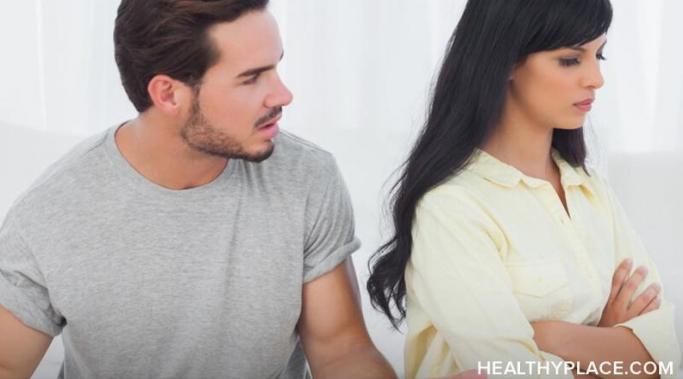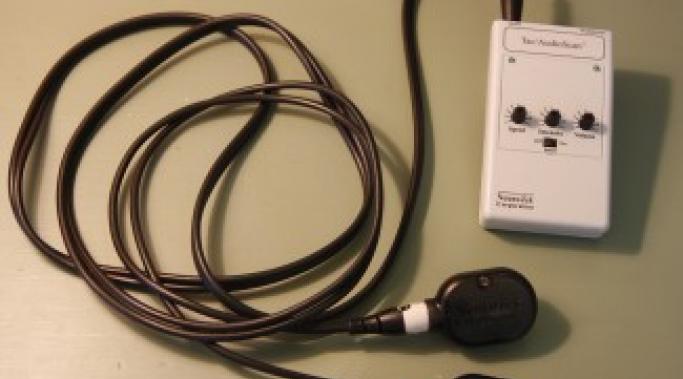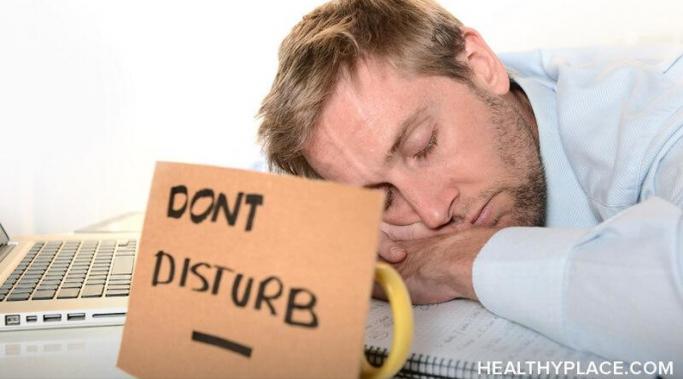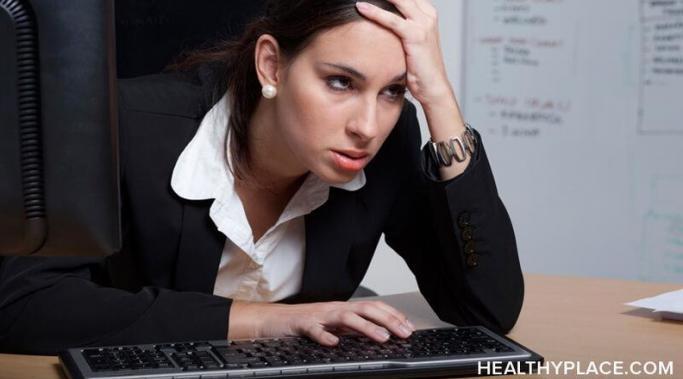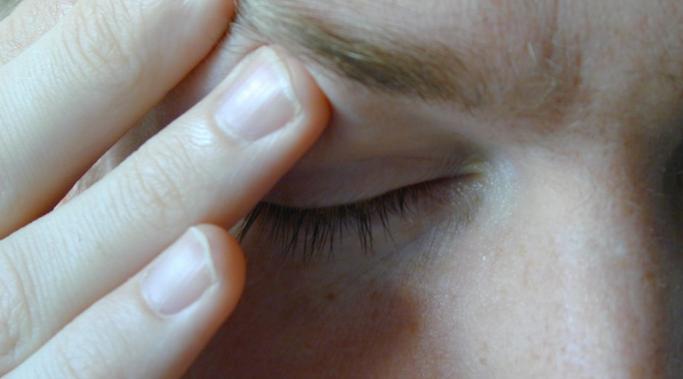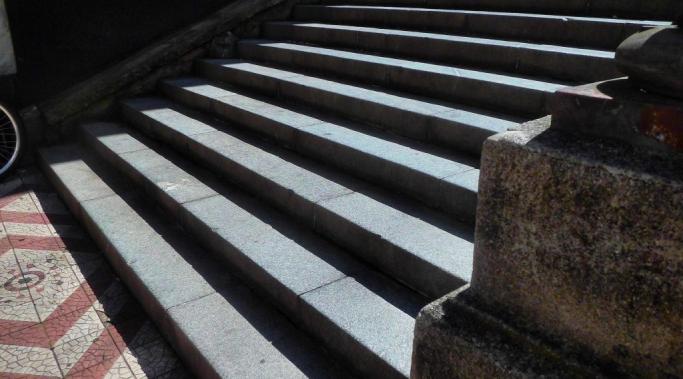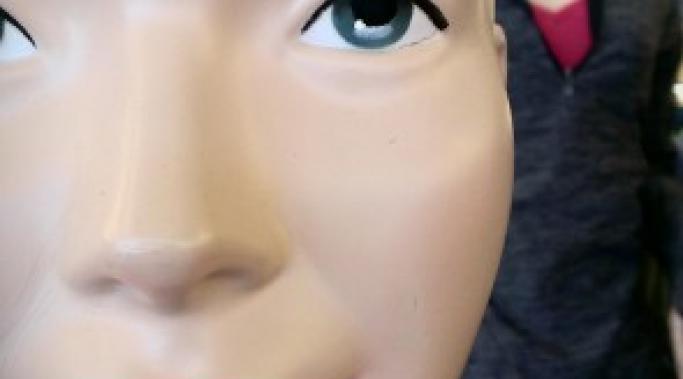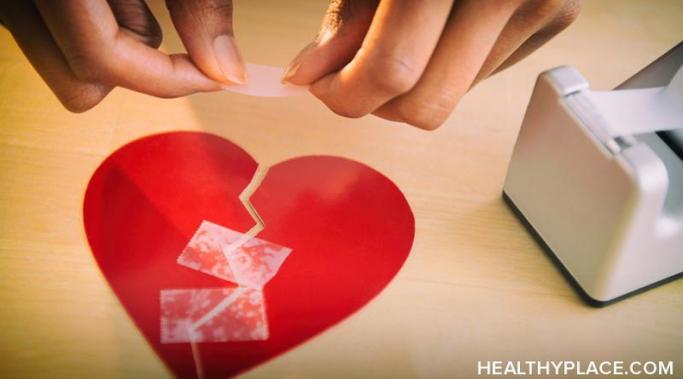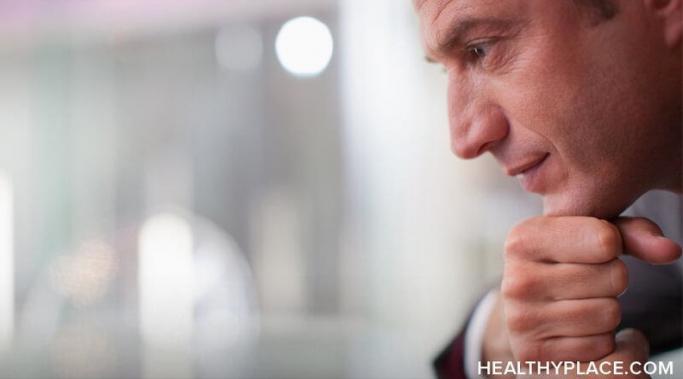Many of us live with people who don't understand our anxiety. About 18% of American adults live with an anxiety disorder.1 There are millions more all over the world who also have anxiety, which means that a lot of us live with people who don't understand our anxiety. Whether it's roommates, parents, spouses, or children, you may be living with people who don't understand (Lack of Understanding of Mental Illness). Here are some thoughts on how to cope better in that situation.
Treating Anxiety
I've been seeing a therapist for a while to help decrease my anxiety. We generally just talk, but, today, we tried something new. Well, it was new for me, anyway. He's been using eye movement desensitization and reprocessing (EMDR) therapy for a number of years with his other clients. We did a session today using EMDR, and my therapist really helped me decrease my anxiety levels.
Living with mental health issues means there will be days where you feel paralyzed by anxiety and depression. Because comorbid depression and anxiety are so common with different mental illnesses, nearly everyone who struggles with mental health will have to get through a day feeling paralyzed by anxiety and depression. I had one today, and man, it was rough. But, the good news is, I got through it.
One important skill to acquire when you you have anxiety is learning how to avoid future-tripping. Future-tripping, also called anticipatory anxiety, is part of the human condition of peering into the imagined future and anticipating the outcome. Everyone does this to some degree or other. It's one of the blessings (or perhaps curses) of having a human brain with a frontal cortex. A person without an anxiety disorder may see a pleasant outcome, while an anxious person will likely imagine the worst outcome possible. The truth is, we don't know what's going to happen. That's why future-tripping when you have anxiety is a good thing to avoid.
I live with a lot of pain from generalized anxiety disorder (GAD). That pain has to be released on a regular basis if I want to stay sane. Physical and/or emotional pain from GAD is very common. I have both, although my pain symptoms are more about emotional anguish than physical distress. But, the emotional pain of generalized anxiety is very real, as real as any physical symptom. I have to release some of that GAD pain on a daily basis, or I'll be destroyed by it. Here are some thoughts about how I release the pain of my own generalized anxiety disorder.
You probably know that 12-step groups help with things like alcoholism and codependency, but did you know 12-step groups can also help anxiety disorder? Such groups are a great way to alleviate loneliness, plus they help with building self-esteem and gratitude. Over time, 12-step groups can help the pain of anxiety disorder.
Most people with anxiety need to find ways to lower their cortisol levels to lower their anxiety. Cortisol is a chemical produced by your adrenal glands. It's an important part of overall, robust health, because cortisol gives you the energy to face challenges and move past them. But, too much cortisol in your bloodstream causes and/or exacerbates anxiety, and can also wreak havoc on your health in lots of other ways. As part of self-help stress management, it's important to find ways to lower your overall cortisol levels. Lowering cortisol also lessens anxiety disorder symptoms.
Fake concern about anxiety and depression has probably been with us since homo sapiens first swung out of the trees around 200,000 years ago. Humans with depression, anxiety and panic, mental illness, and mood disorders have always been discriminated against, in virtually every society in history. That said, great strides have been made to end mental health stigma, and portray people with mental health issues as just that: ordinary people. However, some of the concern certain people express about depression and anxiety is actually little more than a smokescreen for more discrimination. In other words, it's a fake out. Here's how to spot fake concerns about anxiety and depression and protect yourself against it.
It's no secret that managing anxiety in love relationships can be tricky. That's because nothing can trigger anxiety like the intimacy and vulnerability of a relationship. It takes a lot for an anxious person to risk having their anxiety seen by an intimate partner, and that's why it's crucial to have some ways to manage anxiety when you find yourself in a love relationship.
If you're an anxious person, working at a job that's anxiety-friendly can be a huge benefit to your life. So many people with anxiety disorders struggle with work because of the difficulty of social interaction and other job stressors. Work is anxiety-provoking for everybody to some degree, but, if you have anxiety, anxiety at work can be truly hellish. That's why it's important that us anxious types find jobs that take our anxiety into account. This week, we'll explore 10 of the most anxiety-friendly jobs out there.
